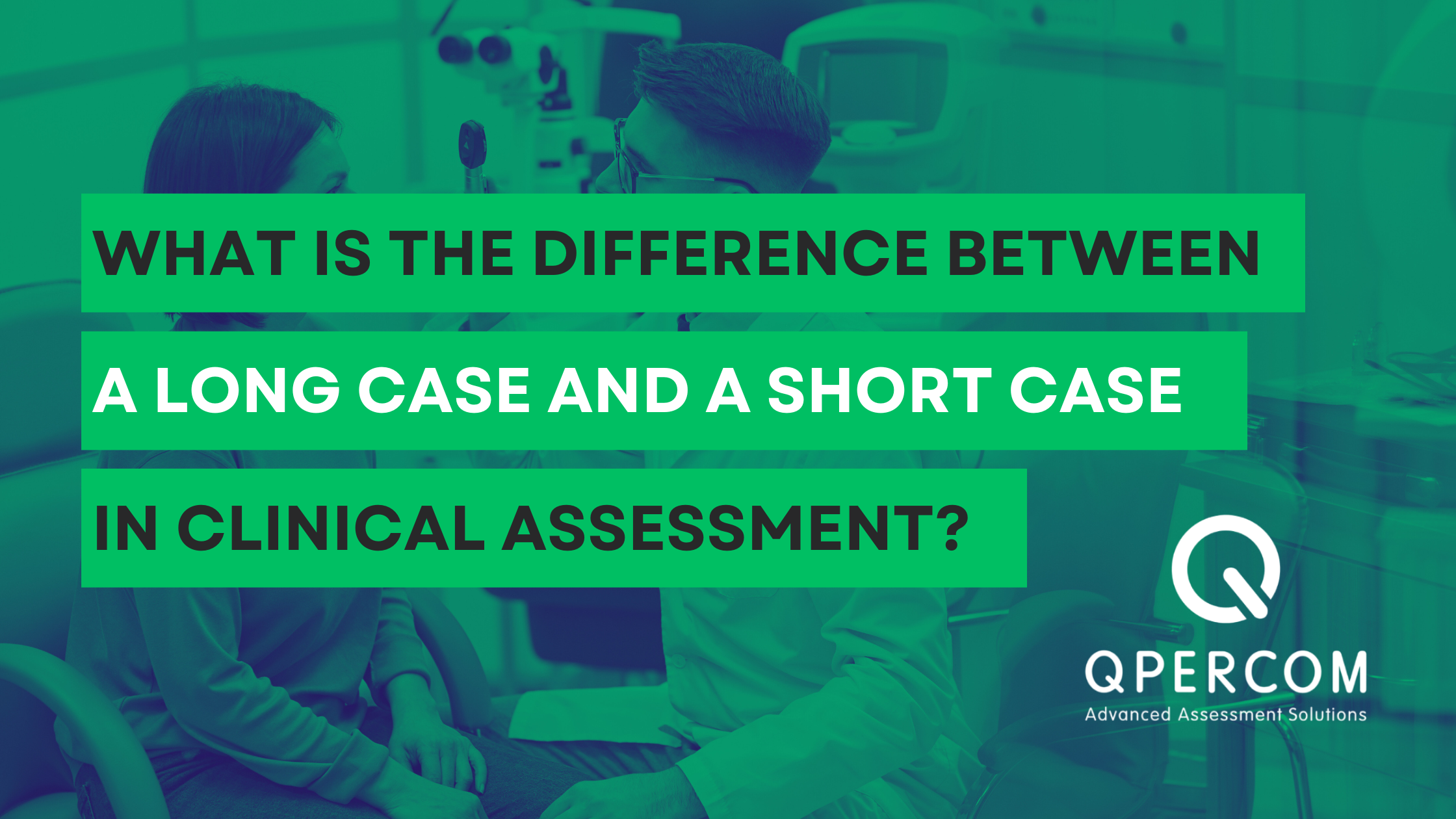Both long and short cases are used in the assessment of clinical competence to determine if students are safe to progress as medical practitioners. They are alternative competency measures that can be used in tandem with other assessments such as the Objective Structured Clinical Examinations (OSCEs) or Multiple Choice Questions (MCQ).
Unlike traditional OSCEs, where simulated patients are mainly used, Long and Short Case OSCEs or clinical skills scenarios use real patients as part of an interaction between a student, trainee or junior doctor and a more senior healthcare professional. The use of real patients in these cases replicates medical consultations and can increase the reliability of the assessment, according to Kamarudin et al (2011).
What is the structure of a Long Case?
A Long Case is an assessment that usually lasts between 20-25 minutes and is split into three distinct segments including history-taking, examination of the patient and discussion of a patient management plan with the senior healthcare professional.
What is the structure of a Short Case?
A Short Case is normally a much shorter scenario, featuring a student and either a simulated or a real patient. It is used to assess a student’s ability to quickly approach a case and highlight and interpret different key clinical signs before offering a differential diagnosis. Students are also assessed on their ability to explain medical concepts, provide patient education and demonstrate empathy and professionalism.
What is the difference between a Long Case and a Short Case assessment?
A Long Case assessment is longer than a Short Case assessment and is a more comprehensive consultation with a patient. It allows more time with a patient to discuss their symptoms and condition.
The feedback offered to a student after a Long Case would be expected to be more detailed and focused on clinical reasoning and the candidate’s approach to patient care.
A Short Case assessment concentrates on a student’s ability to quickly use their clinical skills to identify physical signs and to formulate a clinical impression. There is less time with each patient, so students must come to a diagnosis and future management plan in a much shorter time period.
To summarise, the Long Case offers a holistic, in-depth and longer approach, evaluating a student’s comprehensive abilities in managing a patient case from start to finish, including history-taking and devising a management strategy. Conversely, the Short Case hones in on specific clinical skills, particularly emphasising the rapid and efficient recognition of crucial clinical signs and symptoms. Together, these two types of cases are integral in medical education, ensuring that students develop a well-rounded set of clinical competencies.





























